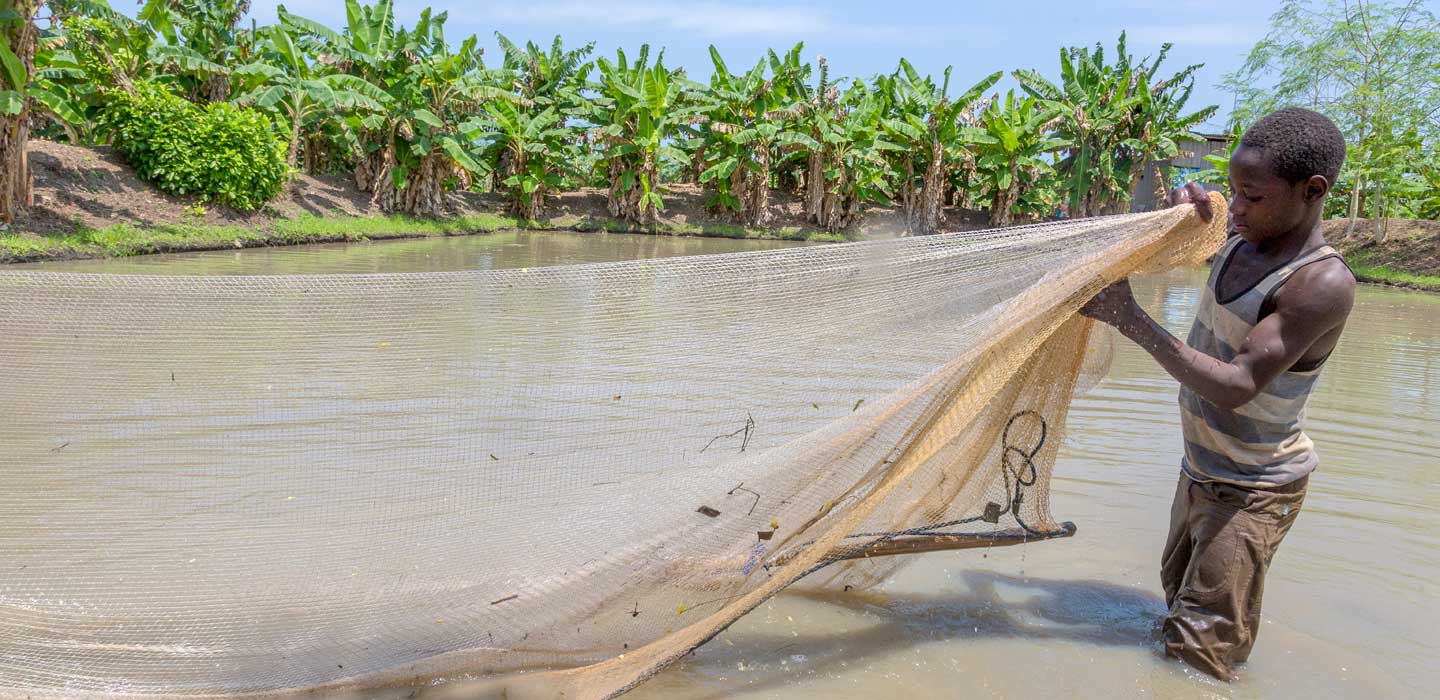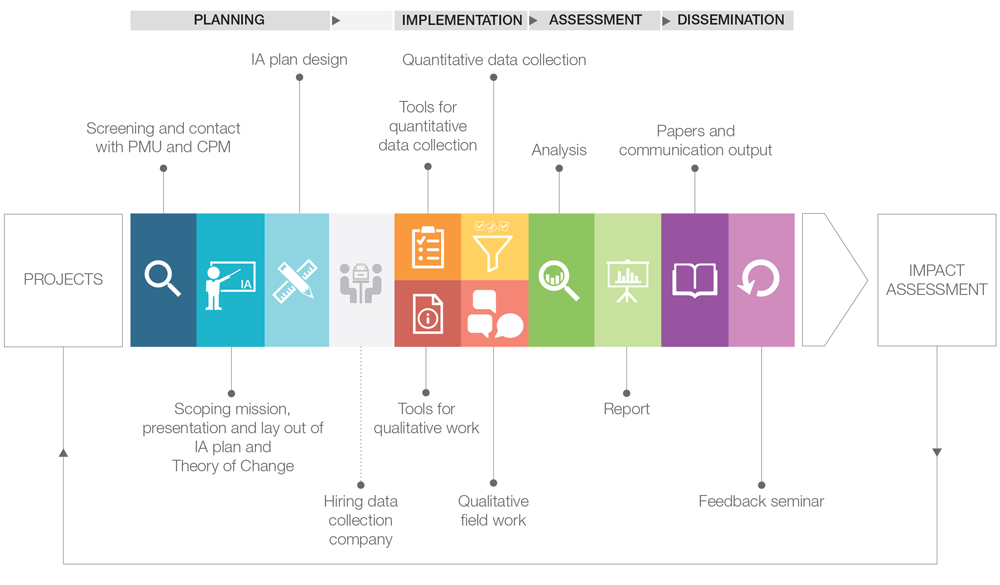Impact assessment

Impact assessment
Impact assessment
Measuring what matters
IFAD conducts impact assessments to understand whether changes in the lives of IFAD project participants can be attributed to the project itself. These impact assessments take into account various factors that may affect results, including economic factors, natural disasters or conflicts.
Designed in close collaboration with local stakeholders and governments, the findings of impact assessments are used to inform decisions.
As part of the Development Effectiveness Framework, IFAD conducts impact assessments on at least 15 per cent of its project portfolio, which provide a representative sample of IFAD's overall portfolio. IFAD is the only International Financial Institution that reports its results at corporate level through rigorous impact assessment.
IFAD's impact assessment cycle

Stage 1: Planning
IFAD’s Research and Impact Assessment division trains country teams and project staff on impact assessments. The project's theory of change is developed, key indicators are listed and policy-relevant research questions are formulated. Next, an impact assessment plan is prepared which describes the strategy and necessary steps.
Stage 2: Implementation
Both qualitative and quantitative instruments are developed with partners. Next, local and trusted researchers use tablets to conduct interviews and collect standardized survey data.
Stage 3: Assessment
Data is cleaned, processed and analysed following a standardized protocol. This ensures that the empirical analyses are transparent, consistent and comparable across projects and countries. It also allows us to aggregate impact estimates and project these to IFAD's project portfolio.
Stage 4: Dissemination
To bridge the gap between research and policy, a feedback seminar is held to discuss results with policy makers, project partners and other stakeholders once the impact assessment is completed.
Related publications
Related publications
Achieving Rural Transformation: Results and Lessons from IFAD Impact Assessments
This synthesis draws on 17 recent IFAD Impact Assessments conducted in various countries and production systems to analyse project activities and theories of change.
IFAD10 Impact Assessment: An Overview
To hold itself accountable on progress made in achieving this goal and these three strategic objectives, IFAD has adopted a unique approach to reporting impact at the corporate level, building on rigorous project-level evaluations. This report provides the results of these efforts to assess the corporate impact of IFAD investments for the Tenth Replenishment of IFAD’s Resources (IFAD10) period of 2016-2018.
Effective rural development: IFAD’s evidence-based approach to managing for results
This report reflects IFAD’s ongoing efforts to generate evidence to inform decision-making at the corporate and project level.





